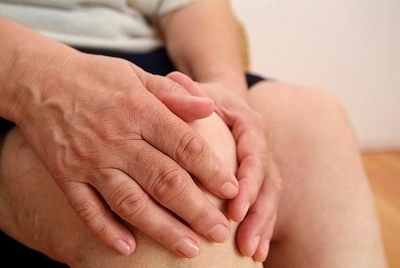A simple and cheap new treatment for rheumatoid arthritis is set to revolutionize the lives of patients crippled by the painful disease. Just a single injection of the new drug, developed by British scientists, is so potent it can give months of relief. Made from the human protein BiP, it mobilises the body’s immune system to help stop the disease in its tracks.
As the first human trials of the drug begin, doctors say it is also showing promise as a treatment for brittle bone disease. That means it could help up to four million people in Britain who suffer from either osteoporosis or RA.
Ailsa Bosworth, chief executive of the National Rheumatoid Arthritis Society, said: “This is a hugely exciting step forward.
“Three-quarters of people are of working age when diagnosed and so the prospect of a new and cost-effective treatment which, in a single dose, can keep people working and getting on with day-to-day life for longer is very welcome news, not only for people with RA but for the NHS and society as a whole.”
The two-year trial will be carried out by researchers from King’s College London and doctors from Guy’s and St Thomas’ NHS Foundation Trust. Dr Valerie Corrigall, of King’s College, said: “This trial is the culmination of 15 years of work. It’s very exciting to be at this stage.
“Using a patient’s immune system to help protect against the disease is a new approach to treatment. As well as being a very promising therapy, we’ve purposefully designed BiP to be more cost-effective than biological therapies which work well but are extremely expensive.”
BiP forms part of the body’s normal response to inflammation. Although it is found in the joints of people who have had RA for a long time, it is in insufficient quantities to have a beneficial effect.
The fact that it is a human protein means the drug should not have harmful side effects.
Professor Gabriel Panayi, professor emeritus of rheumatology at King’s College London, said: “If BiP works as we expect then a single dose should be sufficient to put patients into remission for months. The most important thing is that our patients will have a better quality of life.
“As a bonus, they should need fewer appointments which will free up valuable NHS resources.”
Professor Alan Silman, medical director of Arthritis Research UK, which is funding the trial, said: “We’re very excited that the culmination of several years of support has resulted in a potential new treatment.”
Nearly 10 million people in Britain are blighted by arthritis. Osteoarthritis affects at least 8.5 million and causes pain usually in the hands, spine, knees and hips when the cartilage wears down, allowing bones to rub against each other.
Rheumatoid arthritis, which is more severe but less common, affects about 700,000 people and occurs when the immune system attacks the joints. It causes pain and swelling, stiffness, fatigue and disability. There is no cure for either condition and each year the NHS carries out more than 140,000 hip and knee replacements at a cost of more than £1billion.
Up to 40 per cent of people with RA lose their jobs within five years and each year up to 900,000 hospital appointments are needed.
Researchers say BiP seems to work by inhibiting osteoclasts, which are bone-eating cells. That is what makes it also a potential treatment for osteoporosis.
About three million people in the UK have brittle bone disease, resulting in more than 230,000 fractures a year.
Source: express.co.uk







